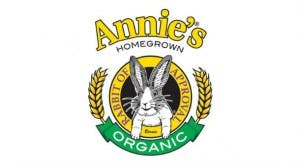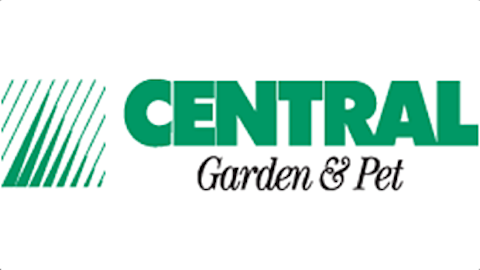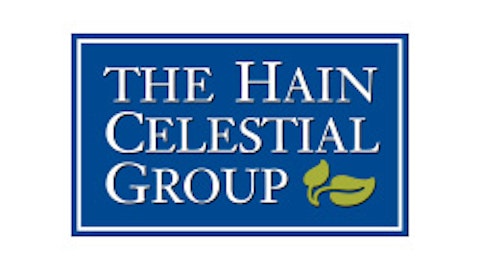The incredible growth of the organic food business in the U.S. and overseas, has been nothing short of spectacular. According to the Organic Trade Association’s 2011 survey, U.S. sales of organic food and beverages have grown from $1 billion in 1990 to $26.7 billion in 2010. The Organic Monitor, an international research firm, pegged global organic sales at $54.9 billion in 2009, up from $50.9 billion in 2008.

Big Food is buying Little (organic) Food
Armed with the previous data points, large American food companies are staking their claim in the organic vertical by acquiring smaller, stand-alone brands. According to a 2012 New York Times article entitled, Has ‘Organic’ Been Oversized?, “organic food has become a wildly lucrative business for ‘Big Food’ and a premium-price-means-premium-profit section of the grocery store.”
Case in point is Bear Naked, the all-natural granola and cereal manufacturer, now owned by Kellogg Company (NYSE:K), which has a market cap of more than $23 billion. Naked Juice, the wildly popular juice producer, famous for its “acai machine” and “green machine” 100% juice smoothies, is now owned by PepsiCo, Inc. (NYSE:PEP), the maker of Cheetos, Frito’s, and Mountain Dew.
Three small-cap organic producers are still pure plays
With Big Food’s increasing appetite for acquisitions, it has becoming increasingly difficult for investors to find “pure play” organic food manufacturers. Three publicly-traded companies, with market caps over $500 million, are currently available for consideration. They include include Annies Inc (NYSE:BNNY), Boulder Brands Inc (NASDAQ:BDBD) and The Hain Celestial Group, Inc. (NASDAQ:HAIN). Now, let us run down business metrics for these three food producers.
Annie’s is homegrown, but running low on cash
Annies Inc (NYSE:BNNY), founded by organic farmer Annie Withey, markets its own brand of non-GMO products, all bearing the Annie’s Homegrown name and its renowned black-and-white bunny logo. Annies Inc (NYSE:BNNY) products include organic and gluten-free pastas, rices and macaronis, Bunny Graham cookies, vegan salad dressings, and pizzas.
Annies Inc (NYSE:BNNY) went public in 2012 and is now headquartered in Berkeley, California, considered by many the home of the “whole food” movement. With a market cap of $648 million, Annies Inc (NYSE:BNNY) has an inflated trailing P/E of 69.22, but solid quarterly revenue growth of 17.70%. Bottom-line results have been lumpy, with quarterly earnings declining by more than 37%. Unfortunately, Annie’s also has a small cash position of just $12.96 million.
Boulder re-brands and repositions for the future
Headquartered in Paramus, New Jersey, Boulder Brands Inc (NASDAQ:BDBD), with a $557 million market cap, is re-branding and making the physical move to Boulder, Colorado in 2013, environs more inline with its audience. On Jan. 2, the company changed its name from Smart Balance to Boulder Brands, which was “implemented to better reflect its recent transformation to a company with multiple brands” according to a company press release.
Boulder is the maker of healthy butters and oils, with brands Smart Balance and Good Life in its stable. The company also manages the Udi’s and Glutino gluten-free brands. As with Annie’s, Boulder has an immense trailing P/E of 125.43, but shines with quarterly revenue growth of 34.70%. Unquestionably, Boulder is growing quickly, but it appears overvalued, has a limited brand portfolio and cash of just $11.51 million.
An established player in the organic arena
Based in Melville, New York, The Hain Celestial Group, Inc. (NASDAQ:HAIN) has been in existence since 1926. The company assumed its current name in May 2000 through the merger of Hain with Celestial Seasonings. The company markets hundreds of gluten-free, kosher, organic, and natural food brands, such as Almond Dream, Arrowhead Mills, Bearitos, Freebird, Garden Valley, Spectrum Naturals, and West Soy, among many others.
Unlike Annie’s and Boulder, The Hain Celestial Group, Inc. (NASDAQ:HAIN), with a market cap of $2.93 billion, has a rational trailing P/E of 30.79, quarterly revenue growth of 24.80%, and outstanding earnings growth of 57.80%. The company has $42.57 million in cash reserves and levered free cash flow of $63.73 million. This gives The Hain Celestial Group, Inc. (NASDAQ:HAIN) the capital to continue to acquire new brands and pursue share buy-back programs.
On Feb. 5, The Hain Celestial Group, Inc. (NASDAQ:HAIN)’s management team reported second quarter earnings for fiscal 2013 and delivered blow-out numbers, with record sales of $455 million and adjusted earnings up nearly 36%, versus the same quarter a year prior. These positive results prodded management to raise guidance for 2013. According to the company, it is now expecting a “total net sales range of $1.740 billion to $1.755 billion; an increase of 26% to 27% as compared to fiscal year 2012.”
A healthy choice for your plate and portfolio
Without question, the best bet of these three organic food producers is Hain Celestial. The company is well diversified across dozens of organic food categories, and has far stronger business metrics than its competitors. In addition, the company is run by an experienced, long-time CEO, Irwin Simon, and is a favorite holding of activist investor Carl Icahn. Icahn’s holding company owns a 15% stake and has two seats on the board, which bodes well for shareholders.
Naysayers will point to Hain already delivering a 42.70% return over the last year, as compared to a 15.07% return for the S&P 500. When you look at the tremendous growth potential of the industry, however, the short- and long-term outlook for Hain is incredibly rosy. The Nutrition Business Journal is predicting that that “healthy foods should increase its share of the total foods market, reaching 23% penetration by 2017,” a significant move from where the category is today. As the NBJ stated in its 2010 report: “food is big business, and healthy foods are the future of that business.”
Hain Celestial is scheduled to report third quarter earnings on May 2nd. If the company can meet or beat its revised upwards guidance, the stock should continue its upward trajectory and investors can bank on another double-digit return for fiscal 2013 and perhaps, far beyond.
The article Investing in the Organic Food Boom originally appeared on Fool.com and is written by Julian Willis.
Copyright © 1995 – 2013 The Motley Fool, LLC. All rights reserved. The Motley Fool has a disclosure policy.

